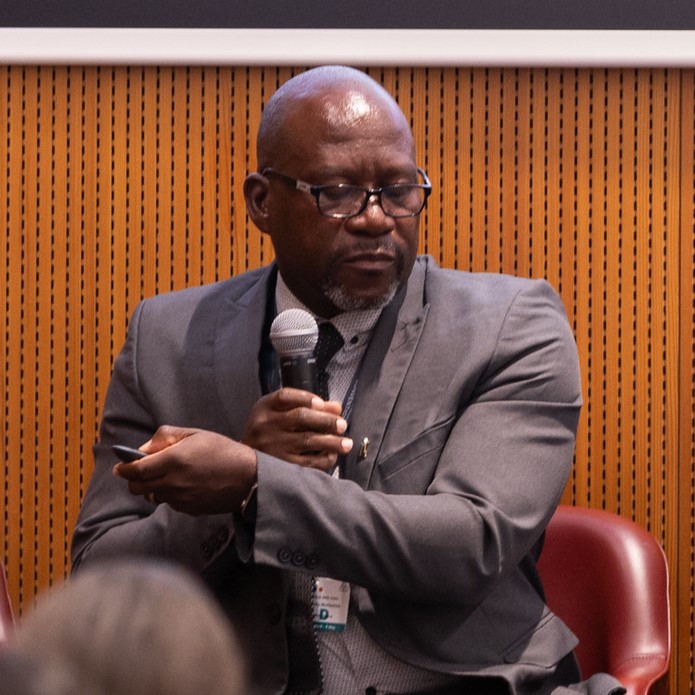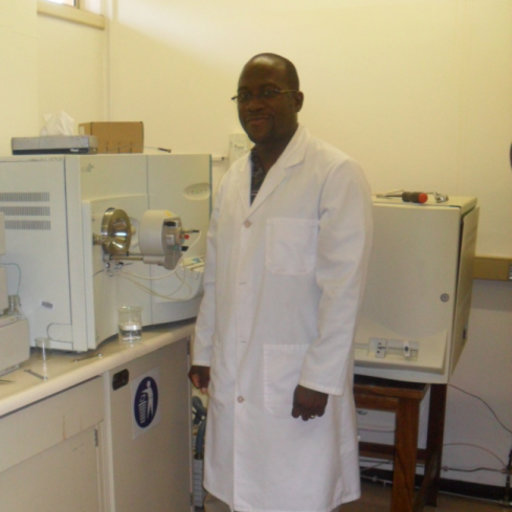This blog post is based on the remarks of Mr. Saidy Motladiileon the Global Green Growth Knowledge Partnership (GGKP) roundtable “National Implementation Plans: Research needs and opportunities in Africa” held on 10 June 2025.
Botswana’s Commitment to the Stockholm Convention: A Research-Driven Path to Sound Chemicals Management
When Botswana first ratified the Stockholm Convention, it did so with a clear vision: to protect the health of its people and its environment from the long-lasting threats posed by persistent organic pollutants (POPs). That vision continues to guide the country today. After submitting its initial National Implementation Plan (NIP) in 2011, Botswana reached another milestone with the completion of its updated NIP in April 2025. But the journey revealed a crucial gap—much of the existing data was derived from global tools and lacked national specificity.
“We believe at the centre of POPs management is the availability of adequate research and available data.”
This belief lies at the heart of Botswana’s evolving strategy.
Responding to New Chemicals and Emerging Risks
Botswana’s updated NIP comes at a time when new POPs are being added to the Stockholm Convention. Substances such as chlorpyrifos and Medium-Chain Chlorinated Paraffins (MCCPs) now demand attention. As the list grows, so too does the country’s need for national baseline data—essential for evaluating chemical use and identifying safer alternatives, particularly in agriculture, industry, and waste.
The call for risk assessments is urgent, especially to understand how POPs affect marginalised and vulnerable groups. Gender-responsive approaches are gaining ground, and Botswana recognises the importance of interdisciplinary research that connects science, toxicology, and policy.
Building Capacity: The Role of the National Environmental Laboratory
To turn research into action, Botswana relies on the National Environmental Laboratory (NEL), part of the Department of Environmental Protection under the Ministry of Environment. Equipped to analyse polychlorinated biphenyls (PCBs), dioxins, and furans, the NEL benefits from the technical support of the United Nations Industrial Development Organization (UNIDO), received under the unintentional POPs (UPOPs) project.
This assistance has extended beyond Botswana, strengthening regional capacity in Tanzania and Eswatini. Meanwhile, Botswana is actively assessing dioxin and furan emissions from landfill sites—especially those prone to burning. The University of Botswana adds its weight through academic research on hazardous substances. Still, the need for more robust national data underscores the importance of scaling up analytical infrastructure.
Partnerships Beyond Borders
Botswana’s POPs journey has not been walked alone. Key partners such as UNIDO, UNEP, and the Global Environment Facility (GEF) have provided technical and financial support for NIP development and POPs elimination. The Africa Institute, serving as the Stockholm Convention Regional Centre in South Africa, offers capacity-building and laboratory training. The Basel, Rotterdam, and Stockholm (BRS) Secretariat facilitates access to global tools, expert networks, and best practices.
Through Southern African Development Community (SADC) initiatives, Botswana is also deepening regional collaboration on waste management and chemicals regulation. The country sees great value in cross-border exchanges between laboratories, shared research projects, and data-sharing platforms—foundations for building a resilient regional response.
Strengthening the Bridge Between Science and Policy
Despite these efforts, one of Botswana’s main challenges remains: the absence of a dedicated national legal framework for chemicals and POPs management. While general waste laws exist, they fall short of addressing the complexity of POPs.
To close this gap, Botswana envisions a stronger science-policy interface. Embedding researchers in policymaking bodies, encouraging relevant studies, and regularly issuing policy briefs can ensure that science effectively informs regulation. Establishing a national platform to facilitate this dialogue is now a pressing need.
Looking Ahead
Botswana’s story is one of commitment, progress, and an honest reckoning with its challenges. To truly fulfil its Stockholm Convention obligations and safeguard future generations, the country must continue to invest in research, laboratories, and policy reform. Stronger integration between science and governance, coupled with strategic regional partnerships, will help unlock solutions that are both locally grounded and globally aligned.
This blog post was developed drawing on insights from the GGKP roundtable “National Implementation Plans: Research needs and opportunities in Africa” held on 10 June 2025. As part of the Global NIP Update project (GEF ID 10785), funded by GEF and led by UNEP, this roundtable brought together researchers and experts engaged in reviewing and updating NIPs under the Stockholm Convention to foster peer learning on the development of POPs inventories.
To learn more about the Global NIP Update project, visit Global NIP Update | Green Policy Platform
For a deeper dive into the GGKP regional roundtable focused on Africa, you can access the full recordings and materials here: https://www.greenpolicyplatform.org/webinar/national-implementation-plans-research-needs-and-opportunities-africa
Authors:
 |
Mr. Saidy Motladiile, Principal Chemist (National Environmental Laboratory, Botswana)
|
 |
Ms. Soomin Bae, Knowledge Management Support Consultant (GGKP, GGGI)
|



